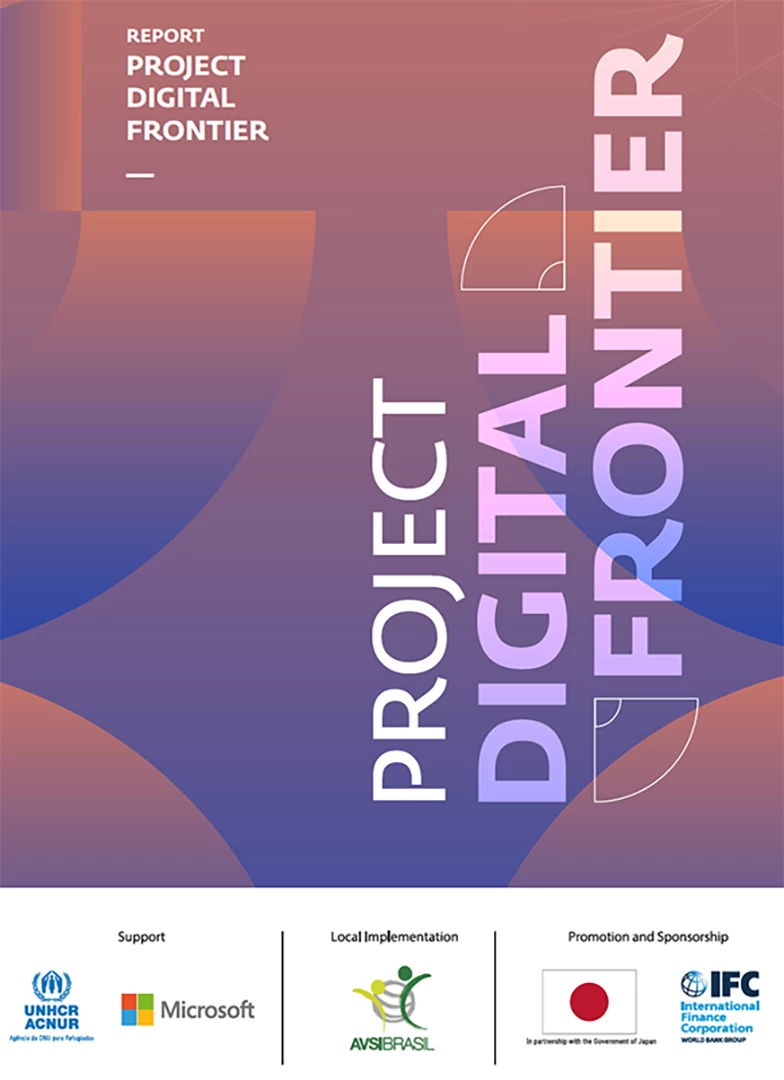Digital Frontier – Promoting Refugee Employability in Brazil
Also available in: Português
In 2015, with the growth of the migratory flow from Venezuela to Brazil, today the fifth most sought-after destination by Venezuelans (UNHCR, 2022), IFC identified the socioeconomic integration of forcibly displaced populations as a strategic challenge for the country that could be addressed through means of articulation between the private sector and other actors in society. In this context, IFC and UNHCR signed a cooperation agreement in 2018 to join efforts and create innovative solutions in the private sector to enable the socioeconomic integration of forcibly displaced populations in Brazil. As part of this partnership, the IFC team created the Making Markets Work for Forced Displaced Populations (MMWFDPs) project, an initiative supported by the Japanese government through the Comprehensive Japanese Trust Fund (CJTF), focusing on three areas: employability, affordable housing, and financial inclusion.
Fronteira Digital is the most recent pilot that IFC developed under the employability pillar and differs from the others as it was born with the objective of being plural in the involvement of the private sector. The project was the result of a partnership between IFC, AVSI Brasil, the UN Refugee Agency (UNHCR) and Microsoft Brazil and consisted of offering technology courses to 30 refugees living in shelters in Boa Vista (Roraima, Brazil), preparing their curriculum and providing support in connecting them to job opportunities in Brazil. Since its conception, the project aimed to: (i) offer technical qualifications in software to participants, (ii) contribute to their interiorization through the Employment-Based Modality (EBM, in English, or Vaga de Emprego Sinalizada – VES, in Portuguese) and (iii) build the business case for the inclusion of refugees in the Brazilian labor market. The project also intended to contribute to increasing female representation in the technology sector. The focus of training in the technology segment arose from the understanding of the sector's potential as an employer and income generator in Brazil.
The project report, available in English and Portuguese, contains valuable lessons learned that help build the business case for the inclusion of refugees in the Brazilian labor market and defend the role of the private sector in promoting values such as diversity, inclusion, and equality. It is expected that the experience contained in the report will serve as inspiration for other similar initiatives in Brazil and around the world to promote inclusive development.
